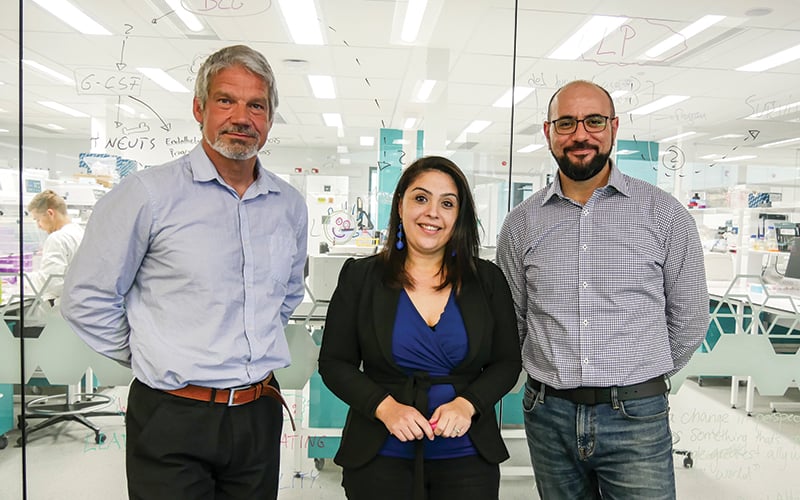Running any research project is a feat of logistical gymnastics – and often, you don’t know what can go wrong until it happens. The aim of the Precision Health Accelerator at Telethon Kids is simple: to streamline scientific research every step of the way, using system biology approaches, cutting-edge technologies, and analysis pipelines.
The brainchild of Professor Tobias Kollmann*, the Accelerator seeks to fast-track scientific research. It’s a unique hybrid model – combining research with a service platform and providing end-to-end solutions for projects. The team’s work ranges from helping to design the study to sample collection and data analysis – all while offering bespoke project management and logistics.
Program Manager Dr Rym Ben Othman said the Accelerator team aimed to collaborate with other researchers to identify opportunities to implement studies optimally – anticipating potential problems or roadblocks before the work begins.
“We optimise the protocols for the study and inform on the best practices from the clinical to lab processes – everything from governance to ethics and clinical data capture, to make sure the project follows all the guidelines,” she said.
“On the lab side, we make sure the protocols are written in a way that is suitable for the study and the information is recorded in the same way.”
The Accelerator is supporting a range of projects, both inside and outside Telethon Kids Institute. They range from immune profiling to help identify biomarkers for Rheumatic Heart Disease, led by Professor Jonathan Carapetis, to investigating whether frontline health workers can be protected from COVID by an already established vaccine – part of the BRACE project, led by Professor Tobias Kollmann and Northern Star Professor of Children’s Respiratory Health Stephen Stick.
Crucially, the Accelerator program offers a cutting-edge multi-omic approach to sample analysis, meaning several layers of molecules are examined together to give a 360-degree view of the information that underlies a particular disease.
Dr Ben Othman said the Accelerator operated like a ‘concierge service’, putting researchers in touch with the best providers and helping to set up new collaborations with experts in the field to carry out complex data analysis.
“We test and develop new protocols and we collaborate with other researchers to help them access those new technologies, and to do advances analysis for systems biology, using different ‘omic’ platforms – whether that’s RNA sequencing or DNA sequencing or other techniques,” she said.
“We aim to combine lab technologies with advanced analysis pipelines to help researchers accelerate their projects.”
